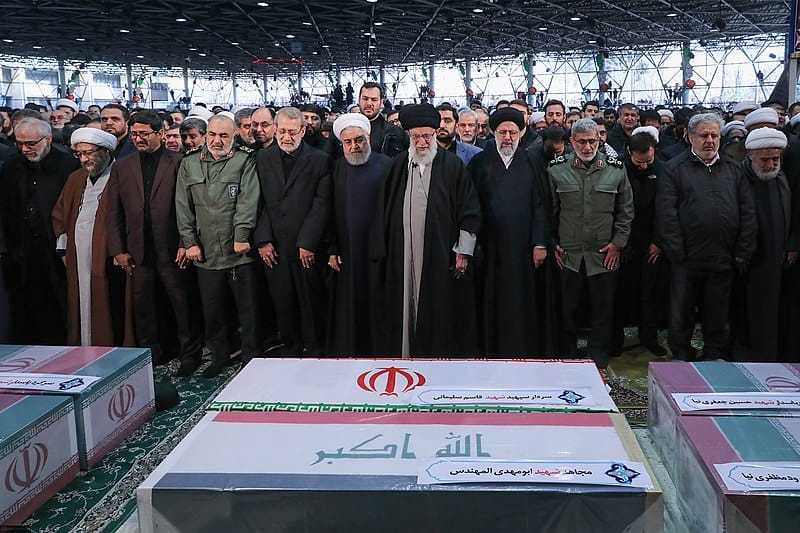Is America falling behind in opposing radical Islam?
Americans expect their nation to be the leader in opposing serious threats to world peace and security. While there is room for differences regarding how best to approach these threats, Americans were at the front lines, real and rhetorical, in the battles with fascism and communism, as well as the war against radical Islam dubbed the Global War on Terror.
Americans expect their nation to be the leader in opposing serious threats to world peace and security. While there is room for differences regarding how best to approach these threats, Americans were at the front lines, real and rhetorical, in the battles with fascism and communism, as well as the war against radical Islam dubbed the Global War on Terror.
U.S. leadership -under President Trump- was indispensable in rolling back the Islamic State in Iraq and Syria. And the U.S. has continued to aggressively target individual terrorist leaders, including the recent targeted killing of AQAP leader Qassim Al-Rimi and Iranian terrorist leader Qassem Soleimani.
But in the larger ideological fight the U.S. has been largely absent despite President Trump’s clarion call from Riyadh to “drive out” radicals from our midst.
As Lorenzo Vidino of the George Washington University Program on Extremism notes in Foreign Policy, major changes are taking place to the way European governments understand the threat posed by Islamist ideology, which they increasingly view as a more significant threat than kinetic jihadist violence. Vidino writes:
Various countries have adopted measures aimed at tackling certain aspects: banning foreign funding (as Austria did) or limiting it (as the Netherlands is discussing); training imams (as Germany does) and deporting radical ones (Italy does this more than any other country); and cutting public funding to organizations connected to Islamist networks for religious, social, pro-integration, anti-Islamophobia, or radicalization prevention activities (as Sweden recently did for a Muslim Brotherhood youth group that did not “fulfill the democracy requirement” necessary to receive aid).
While indicative of a trend, these measures hardly represent a comprehensive approach.
While not comprehensive, they do represent steps in the right direction in Europe. In contrast, as Sam Westrop at the Middle East Forum has documented, the U.S. government continues to provide substantial funding to Islamist groups, well above amounts provided during the Obama Administration.
A Commission on Radical Islam proposed during the Trump campaign was never launched. While reports that the Trump administration is prepared to designate the Muslim Brotherhood as a terrorist organization have surfaced in the media every few months, there is little evidence -such as preliminary Treasury designations of Brotherhood leaders, or even administration rhetoric identifying the Brotherhood by name- that suggests that the administration is prepared to make such a move.
Long written off by American conservatives, Europeans are now having more frank and fruitful discussions about these threats than are Americans. Thanks to the seismic political shake up in the Middle East, the United Arab Emirates, Saudi Arabia now take more action to combat the ideological threat than does the United States. While the President articulated a broad understanding of the threat in his campaign speech on Radical Islam delivered at Youngstown, Ohio, his administration has taken minimal steps to enact this vision.
The President should take immediate action by fulfilling his campaign pledge to appoint a Commission on Radical Islam and empower it to produce concrete proposals for his administration to act on. This will enable the U.S. to regain the leading role in combating one of the most significant ideological threats of our time.
- Think globally, act locally to put a stop to mass disruptions - April 17, 2024
- Anarchist orchestrated “economic blockade” is about more than Palestine - April 16, 2024
- Return of the sheriff - February 27, 2024

